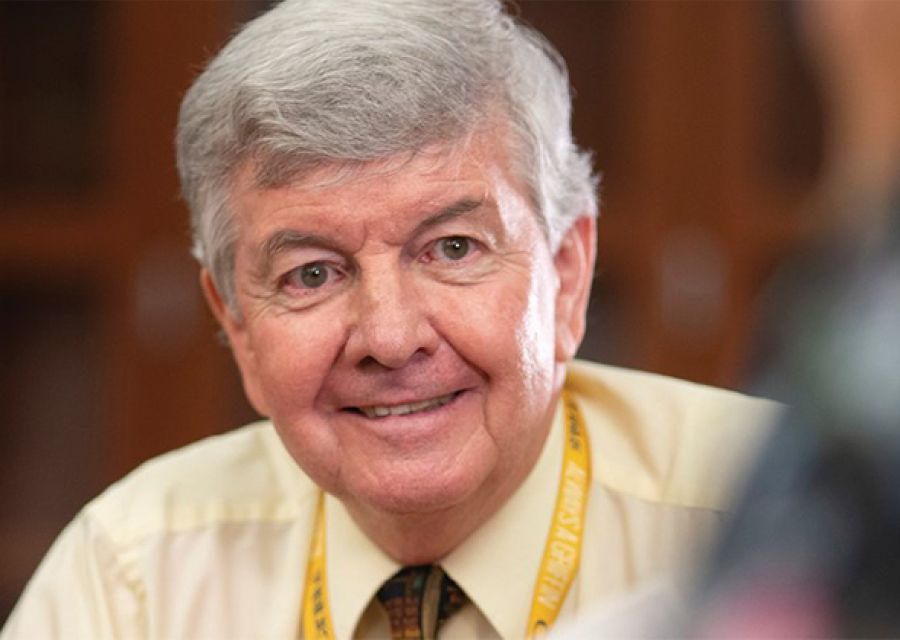
BUFFALO, NY - Kenneth M. Sroka ’65, PhD, always knew the power of the printed word. Canisius’ beloved emeritus professor of English spent four decades in the classroom, where he imparted upon students his love of 19th century British literature.
But in 2010, this veteran educator experienced the healing power of literature and it led to a new chapter in his life.
In April of that year, Sroka suffered a traumatic brain injury following a fall from a ladder in the garage of his West Seneca home.
“Turns out the concrete floor was not a satisfactory pillow,” quips Sroka.
He laughs but Sroka’s injuries brought an abrupt end to his teaching career. The accident kept him hospitalized for 26 days and necessitated extensive cognitive therapy. His rehabilitation included reading.
Bibliotherapy, known clinically as the reading cure, is the therapeutic use of literature to aid in the recovery of patients who suffer from brain injuries and chronic or emotional pain. This idea of textual healing dates to ancient Greece and was used often during World Wars I and II to help returning soldiers deal with post-traumatic physical and emotional stress.
“The characters we meet in books or poems can be cathartic,” Sroka says. “They foster sympathy and enhance our capacity for empathizing with people. We become more intuitive about the feelings of others and more aware of our own.”
Poetic notions aside, there’s science behind what Sroka says.
When coupled with conventional therapies, “reading stimulates, in patients, such cognitive activity as concentration, comprehension, critical thinking and memory,” explains Lisa A. Keenan, PhD, a clinical psychologist and director of rehabilitation behavioral health services at Erie County Medical Center (ECMC). She is Sroka’s former doctor and the impetus behind his second act.
Alongside Keenan, Sroka is the volunteer lead of Psych and Story at ECMC. The weekly reading club combines conventional therapy (Keenan) and literary therapy (Sroka) to encourage mental activity in survivors of traumatic brain injury. Originally introduced by the pair in 2012 as a complementary rehabilitation option for in- and out-patients of the hospital, they have since added a second weekly reading group for patients who suffer from chronic pain.
“Because their worlds often become so small with disability-related stressors and pain medication, that can make them mentally lethargic,” Keenan continues. “The reading club helps patients to remain cognitively stimulated.”
“It is also a beautiful distraction from their pain and discomfort,” Sroka adds.
As the reading group grows in numbers, its relevance to clinical rehabilitation in patients is becoming widely recognized. Most recently, the Christopher and Dana Reeve Foundation awarded a $13,500 quality-of-life grant in support of the bibliotherapy initiative at ECMC.
Further proof, Sroka says, that “literature can really help change lives.”



